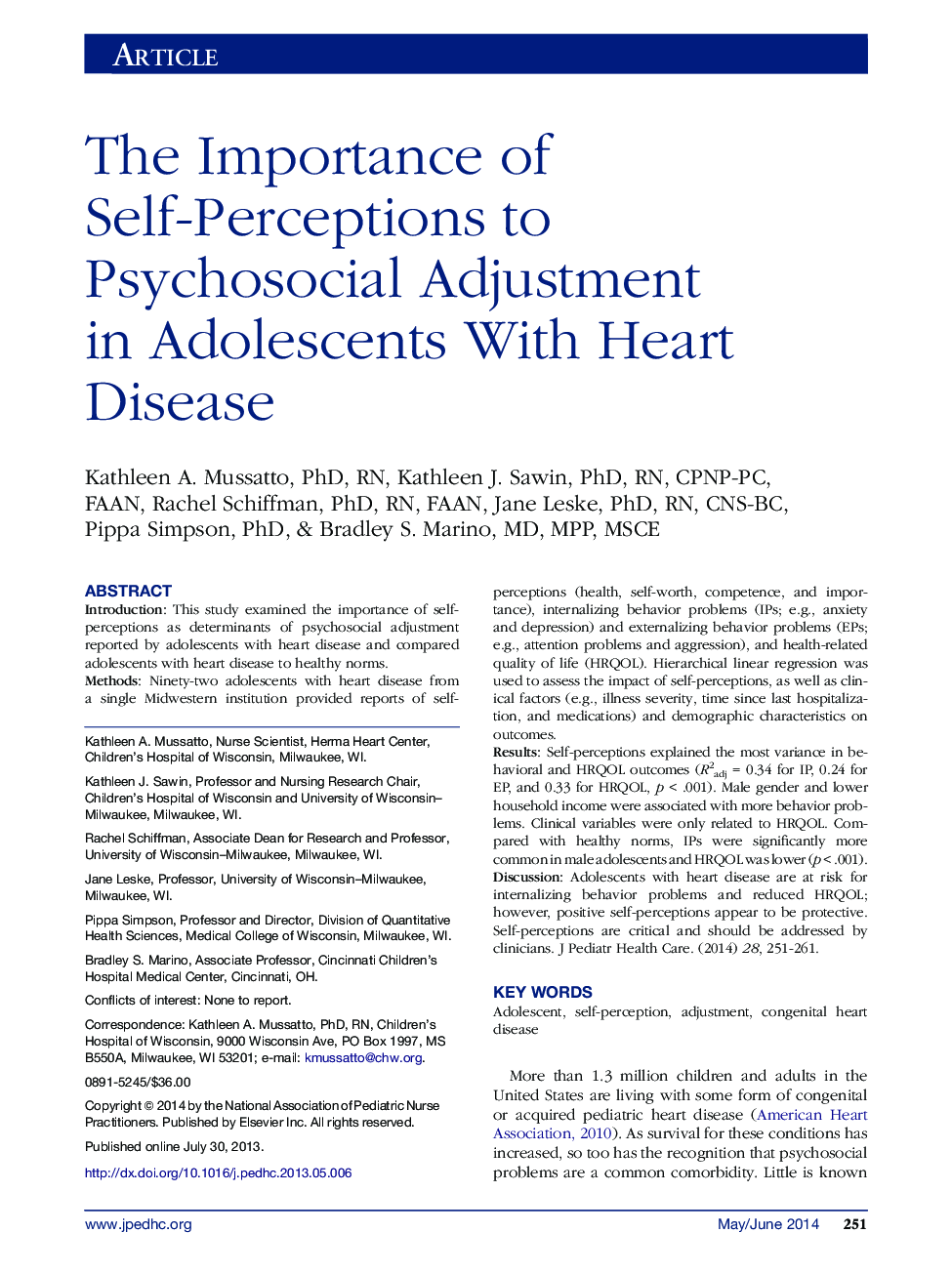| Article ID | Journal | Published Year | Pages | File Type |
|---|---|---|---|---|
| 2662255 | Journal of Pediatric Health Care | 2014 | 11 Pages |
IntroductionThis study examined the importance of self-perceptions as determinants of psychosocial adjustment reported by adolescents with heart disease and compared adolescents with heart disease to healthy norms.MethodsNinety-two adolescents with heart disease from a single Midwestern institution provided reports of self-perceptions (health, self-worth, competence, and importance), internalizing behavior problems (IPs; e.g., anxiety and depression) and externalizing behavior problems (EPs; e.g., attention problems and aggression), and health-related quality of life (HRQOL). Hierarchical linear regression was used to assess the impact of self-perceptions, as well as clinical factors (e.g., illness severity, time since last hospitalization, and medications) and demographic characteristics on outcomes.ResultsSelf-perceptions explained the most variance in behavioral and HRQOL outcomes (R2adj = 0.34 for IP, 0.24 for EP, and 0.33 for HRQOL, p < .001). Male gender and lower household income were associated with more behavior problems. Clinical variables were only related to HRQOL. Compared with healthy norms, IPs were significantly more common in male adolescents and HRQOL was lower (p < .001).DiscussionAdolescents with heart disease are at risk for internalizing behavior problems and reduced HRQOL; however, positive self-perceptions appear to be protective. Self-perceptions are critical and should be addressed by clinicians.
